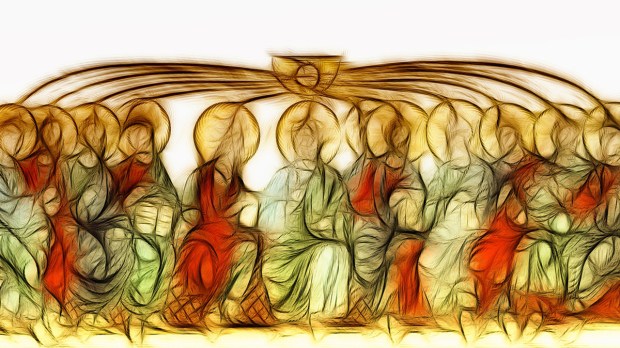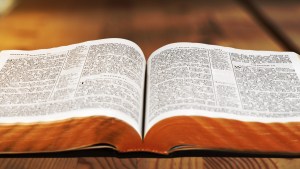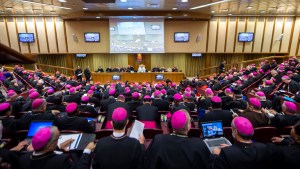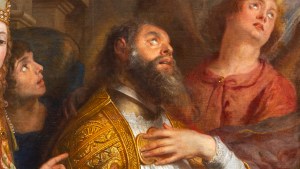The current synod in Rome is part of a much longer process of discernment that will eventually affect every Catholic diocese in the world. It is part of an effort to listen to the People of God and see where the Holy Spirit might be leading the Church.
The preparatory document of the synod explains that this is designed to evaluate the “sensus fidei” of the Church.
It is in the fruitful bond between the sensus fidei of the People of God and the magisterial function of the Pastors that the unanimous consensus of the whole Church in the same faith is realized. Every synodal process, in which the Bishops are called to discern what the Spirit is saying to the Church, not by themselves but by listening to the People of God, who “shares also in Christ’s prophetic office” (LG, no. 12), is an evident form of that “journeying together” which makes the Church grow.
The Catechism of the Catholic Church explains this complex teaching.
The whole body of the faithful. . . cannot err in matters of belief. This characteristic is shown in the supernatural appreciation of faith (sensus fidei) on the part of the whole people, when, from the bishops to the last of the faithful, they manifest a universal consent in matters of faith and morals.“
CCC 92
It’s important to note that this is a unique universal assent that recognizes a belief in which all the baptized faithful are in agreement.
Pope Benedict XVI explained two such examples in the history of the Church in a general audience in 2010.
Thus faith both in the Immaculate Conception and in the bodily Assumption of the Virgin was already present in the People of God, while theology had not yet found the key to interpreting it in the totality of the doctrine of the faith. The People of God therefore precede theologians and this is all thanks to that supernatural sensus fidei, namely, that capacity infused by the Holy Spirit that qualifies us to embrace the reality of the faith with humility of heart and mind. In this sense, the People of God is the “teacher that goes first” and must then be more deeply examined and intellectually accepted by theology.
Essentially this means that at times the People of God, both lay and ordained, could have a better “sense of the faith” than theologians, and articulate a belief that is part of the Gospel message.
However, it’s important to note that this is not a democratic vote, where the Church polls the faithful and sees what teachings to hold onto and which to discard.
It is a complex discernment process where the bishops, in consultation with the faithful, arrive at the same conclusion together.
From 2009-2014, the Vatican International Theological Commission studied the sensus fidei and developed a complete document that lays out the history of this belief, as well as criteria for “authentic participation” in the sensus fidei.
The Commission concluded that the sensus fidei is not open to simply everyone with an opinion, but must be accompanied by participation in the Church’s life and an adherence to the magisterial teachings of the Church.
As the Synod progresses to the diocesesan phase, it is important to know that the Church will be listening to the whispers of the Holy Spirit and evaluating the sensus fidei.




